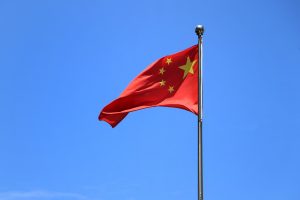Mercy A. Kuo

The Diplomat author Mercy Kuo regularly engages subject-matter experts, policy practitioners, and strategic thinkers across the globe for their diverse insights into U.S. Asia policy. This conversation with Alex Joske ̶ author of “Spies and Lies: How China’s Greatest Covert Operations Fooled the World” (Hardie Grant Books 2022) and a former senior analyst at the Australian Strategic Policy Institute – is the 349th in “The Trans-Pacific View Insight Series.”
Identify the key components of China’s security system and the roles of the Social Investigation Bureau and united front work.
The Chinese Communist Party oversees the world’s largest security apparatus. If we’re just talking about intelligence agencies, then that includes three separate military intelligence systems and the Ministry of Public Security and the Ministry of State Security on the civilian side. Other organs such as the United Front Work Department, Taiwan Affairs Office, and International Liaison Department also engage in activities that cross into the realm of covert and clandestine operations.
Among these agencies, the Ministry of State Security’s Social Investigation Bureau has been the focus of my research. It’s been behind some of the MSS’s most notorious operations, such as the case of Katrina Leung (an FBI asset who actually worked for the MSS) and has a focus on elite influence operations. Part of its success is down to the way it sits atop united front networks. The United Front Work Department and other organs build networks of CCP-aligned figures and organizations, and the MSS Social Investigation Bureau often recruits intelligence assets from within those networks. This integration of united front work and intelligence operations traces right back to the Chinese Civil War.
Describe the function and reach of the China Reform Forum.
China Reform Forum is a think tank in Beijing that presents itself as a reform-minded institution close to China’s leadership. I found that, since its founding, China Reform Forum has actually been run by the MSS Social Investigation Bureau. It’s a platform for intelligence and influence operations against foreign countries, particularly the United States.
Numerous MSS officers have held roles as leaders and scholars affiliated with China Reform Forum, which they used with great success to covertly engage with foreign scholars, diplomats, politicians, and business figures. Especially in the early 2000s, China Reform Forum stood out to many of its interlocutors as unusually well-connected and influential within China. This helped establish China Reform Forum as the go-to think tank in Beijing, and many of its undercover MSS officers were even treated by the U.S. embassy as sources and quoted in dozens of cables.
In what ways have China’s operations “fooled the world”?
The core thrust of these MSS influence operations was an effort to persuade outsiders that China would rise peacefully and inevitably undergo liberal reforms. The MSS’s China Reform Forum was the origin of the “theory of China’s peaceful rise,” which was articulated by Zheng Bijian, a senior propaganda official who served as China Reform Forum’s figurehead. At the same time, the undercover MSS officers often claimed that China would “inevitably” democratize and presented themselves as genuine reformists who would help foreign visitors set up meetings with Chinese leaders and other “reformist” thinkers inside the Party.
This operation was clearly deceptive. The MSS is not in the business of helping foreigners encourage democracy and reform in China. The same officers behind China Reform Forum were also running clandestine assets in the United States and attempting to blackmail or corrupt some of the foreign scholars they met.
Nonetheless, “peaceful rise” managed to effectively capture and reinforce the aspirations many held for China’s future. Some scholars and policymakers still argue that China genuinely aimed to pursue “peaceful rise” before changing its policy as Xi Jinping came to power. The fact that the U.S. government’s policy of encouraging China to become a “responsible stakeholder” in the international order was introduced, in part, as a response to interactions with China Reform Forum speaks to the success of this MSS effort.
With Xi Jinping’s absolute control over the CCP, examine how Xi will likely use the Chinese government apparatus to achieve the party’s strategic objectives.
Xi certainly has extensive control over the party but it’s difficult to know where the limits of that control are. Intelligence and security agencies operate in secret, which can make them difficult to control, and, probably in reaction to this, Xi has heavily purged them over the past decade. Having promoted the previous minister of state security and installed a trusted colleague, Chen Yixin, at the helm of the MSS, Xi now seems to be placing more trust and political backing in these spies.
This should give the MSS more ability to coordinate with and enlist the services of the full breadth of China’s party-state in intelligence operations – meaning better access to cover and resources. If the party’s leadership feels an increasing sense of urgency in achieving its international objectives, for example in winning over politicians in the Pacific Islands, this would manifest as more aggressive, numerous, and potentially violent MSS operations under a higher appetite for risk.
Evaluate the strengths and vulnerabilities of Western government and industry responses to China’s influence operations.
Western governments are still waking up to China’s influence operations and have a long way to go as they develop responses. Right now, I’m especially concerned about the situation in strategically significant countries in the Indo-Pacific. Australia is far better protected against political interference than it was five years ago, but we can’t say the same about Pacific Island nations or many states in Southeast Asia.
No comments:
Post a Comment